Are Memory Foam Mattresses Worth It?
Memory foam mattresses are especially good if you’re looking for pressure relief. They are also a great all-round mattress.
We’ll walk you through all of the pros and cons of memory foam mattresses so you can figure out whether they are suitable for your sleeping position and general sleep needs.
Browse all memory foam mattresses
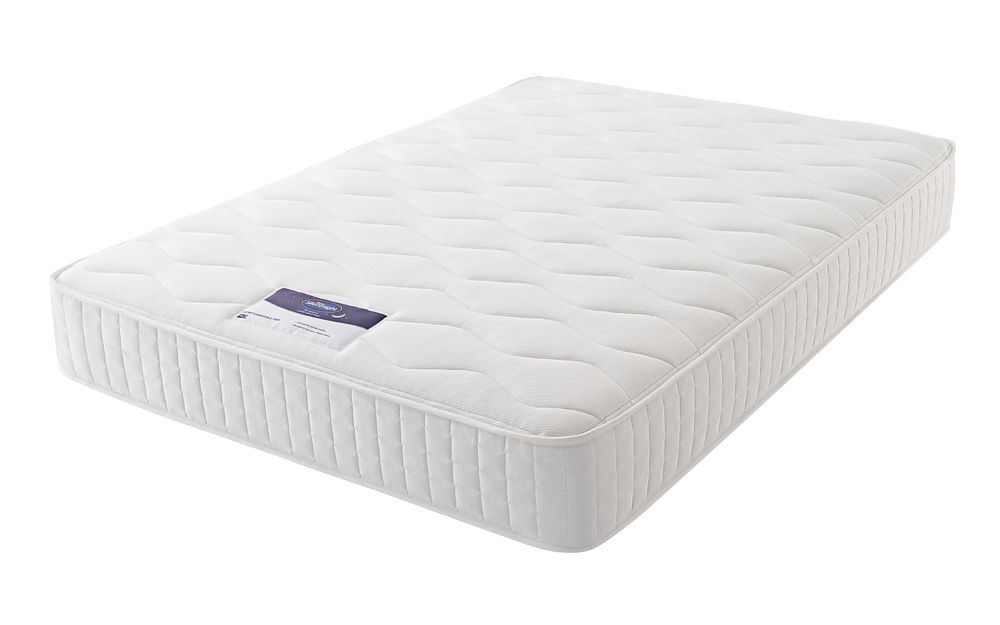
Are memory foam mattresses good?
Yes, if you like the feel of sink-in foam comfort, memory foam mattresses are excellent mattresses.
Foam does feel slightly different to springs, so memory foam mattresses aren’t always for everyone. But one thing is certain, they offer a fantastic night’s sleep.
Memory foam mattresses are ideal if you prioritise the benefits below:
1. Personalised comfort and support
Memory foam uses your body heat to contour to the shape of your body. This provides unique comfort specific to your body shape.
The foam support promotes healthy spinal alignment while you sleep, removing pressure from your joints and hips.
If you share a mattress with your partner, the contoured support system means both of you get targeted support for your different builds and heights.
2. Pressure relief
Memory foam mattresses evenly distribute your body weight to reduce pressure on the heaviest parts of your body, such as hips and shoulders.
This can help to ease aches and pains in those areas and promote healthier blood circulation while you sleep.
3. Reduced transfer of movement
As memory foam moulds to your specific body shape, it creates your own personal sleep zone.
This means your sleep is less likely to be disturbed by your partner tossing and turning in the night.
4. Dust mite resistance
The memory foam in these mattresses contains a visco-elastic structure that cannot be penetrated by dust-mites. This makes them a good option if you suffer from allergies.
If you are concerned about dust mites, remember to check that your mattress is hypoallergenic.
Or, you can check out our range of mattress protectors for more protection against dust mites while you sleep.
Shop all memory foam mattresses today
Still curious about the benefits of memory foam? Check out these two videos from leading brands Sealy and Silentnight:
What sleeping positions are memory foam mattresses best for?
Memory foam mattresses are ideal for any sleeping position due to their unique ability to shape around your body as you sleep.
When it comes to your sleeping position, it is the firmness of the memory foam mattress that is most important to consider. This is because the firmness of your mattress can impact the position of your spine.
While you sleep, your spine should be as straight as possible in order to avoid any possible back or joint pain.
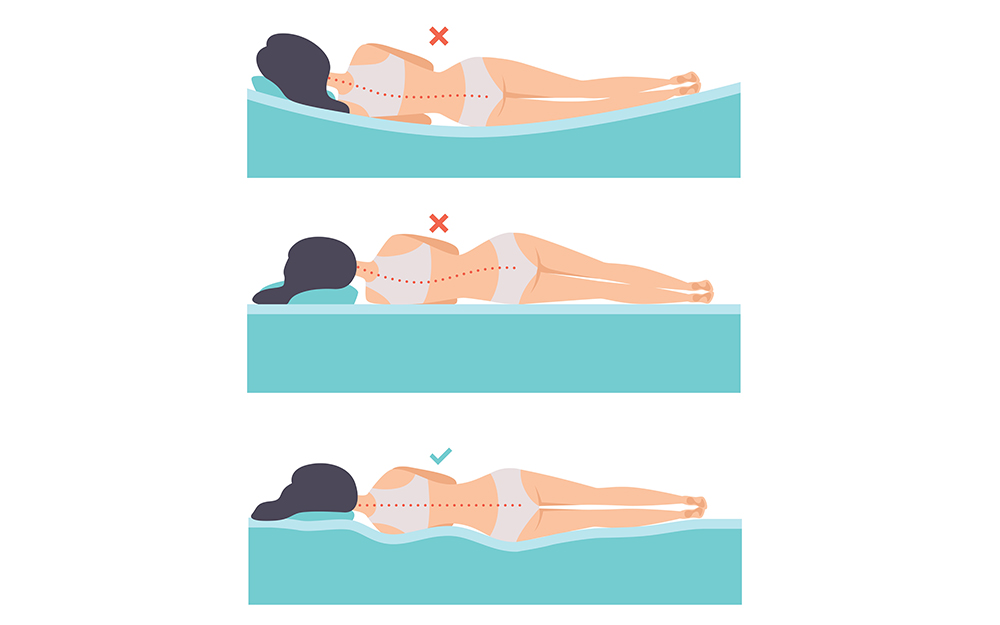
Below we’ll briefly explain what firmness of memory foam mattress is best suited to your sleeping position:
Front sleepers
Sleeping on your front is not usually recommended by sleep experts and health professionals as it arches the spine.
This means that you will need a memory foam mattress that is firm enough to help you sleep with a straight back while maintaining comfortable pressure levels on your joints. For this reason, we’d recommend investing in one of the following firmnesses:
- Medium memory foam mattress
- Medium-firm memory foam mattress
These firmnesses balance comfort and support without being too firm and uncomfortable on the parts of your body that press into the mattress, such as your hips and chest.
Top tip: If you sleep on your front, you should invest in a slimmer pillow. This will help to make your spine as straight as possible while you sleep. Using a slimmer pillow can help to ease neck and back pain.
Side sleepers
When you sleep on your side, your shoulders and hips press more deeply into the mattress, which is why we recommend a softer mattress firmness.
This will allow your shoulders and hips to sink into the mattress slightly, keeping your spine straight and healthy while you sleep.
We’d recommend looking into:
- Soft-medium memory foam mattresses
- Medium memory foam mattresses
- Medium-firm memory foam mattresses
When looking into softer mattresses, you must ensure that it isn’t too soft for your body weight. Mattresses with too much ‘give’ can be very uncomfortable to sleep on.
Back sleepers
If you’re a back sleeper, the chances are that your spinal alignment is already very healthy.
In order to keep your spine in this healthy, straight position, we’d recommend buying a firmer mattress so that your shoulders and hips can be properly supported:
- Medium-firm memory foam mattresses
- Firm memory foam mattresses
For a more in-depth explanation of which mattress type, firmness and pillow depth is the most suitable for your sleeping position, check out this advice page:
Is memory foam good for your back?
Yes, a memory foam mattress can be good for your back, especially if it’s orthopaedic.
Orthopaedic memory foam mattresses are mattresses that have been specifically designed to provide lumbar support. They are often firmer than standard mattresses. When combined with the pressure relieving properties of memory foam, they are an excellent choice if you suffer from back pain.
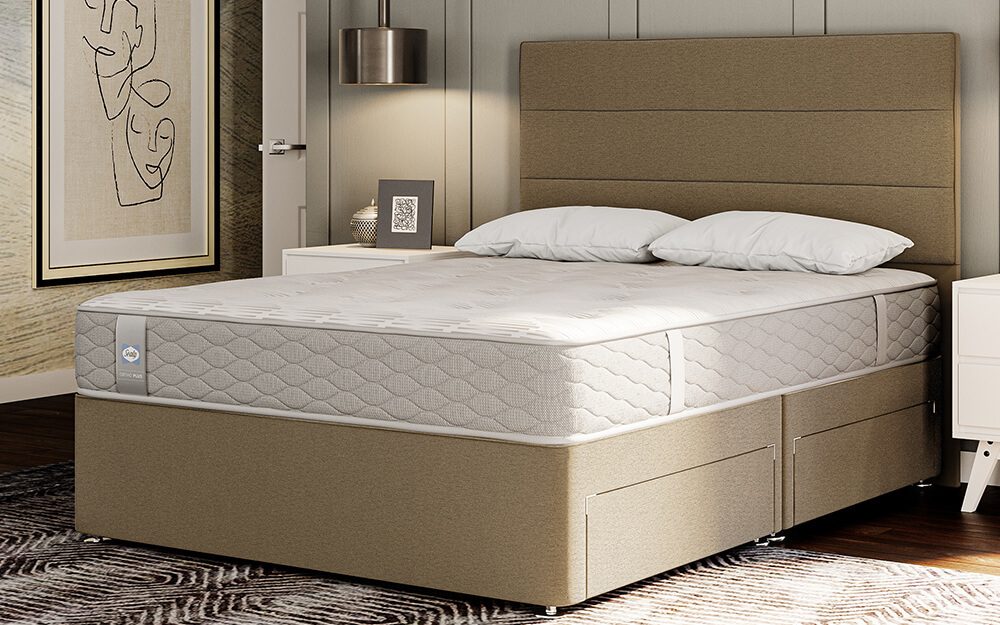
Whether they are orthopaedic or not, memory foam mattresses offer fantastic levels of support as the foam contours to your body to offer unique comfort.
If you have any concerns about back pain, please talk to your doctor.
View all memory foam mattresses
Memory foam mattress pros and cons
To summarise all of the above, here’s a list of the pros and cons of memory foam mattresses:
| Pros | Cons |
| They offer personalised comfort | They can feel warm as they absorb your body heat |
| They provide great pressure relief | They can have a slight chemical smell when you unpack them |
| They reduced transfer of movement | They can be quite heavy to move |
| They are dust mite resistant | They aren’t as environmentally friendly as some sprung or natural filling mattresses |
Memory foam disadvantages
Below we go into more detail about the pros and cons of memory foam mattresses:
Heat retention
There is a common misconception that all memory foam mattresses are hot to sleep on, but this is no longer the case. Temperature regulation in memory foam mattresses has improved considerably over the years.
As we’ve mentioned above, memory foam mattresses use your heat to contour to your body. Due to this, they can absorb a little bit of your heat, which may make the mattress feel warmer.
Some memory foam mattresses are even made as specialised cooling mattresses!
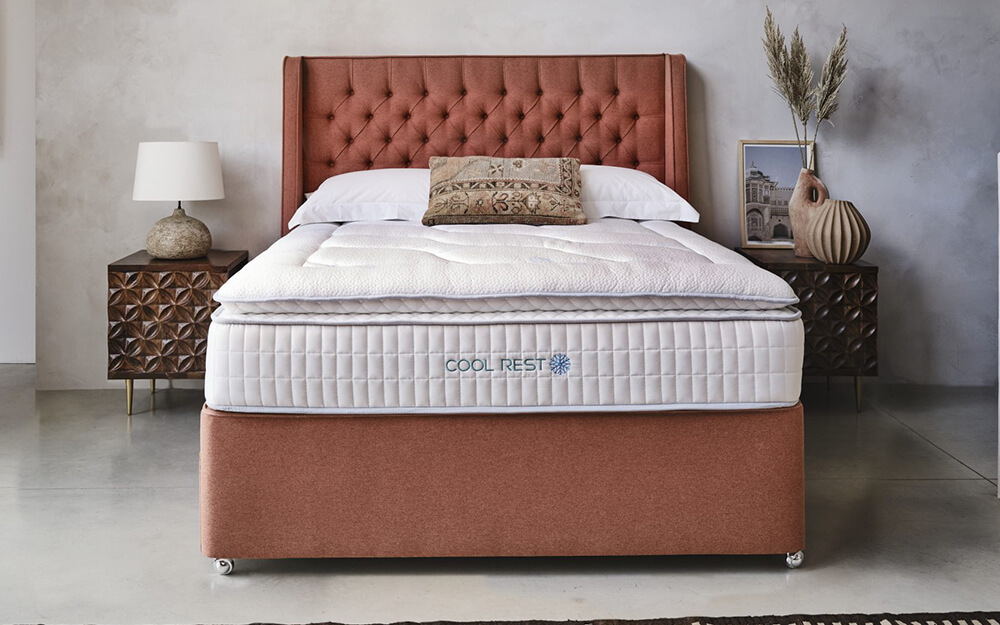
Packaging smell
When you unwrap your memory foam mattress, you may notice that there is a slightly synthetic smell to it. Don’t worry, this will wear off in a few days!
The smell is caused either by the fire retardant treatment or the wrap that the mattress was packed in.
Weight
Memory foam as a material is quite heavy, so having a large block of this foam inside your mattress can make it quite difficult to move about.
This is why many memory foam mattresses arrive rolled up, making them much easier to move from room to room before you unroll them.
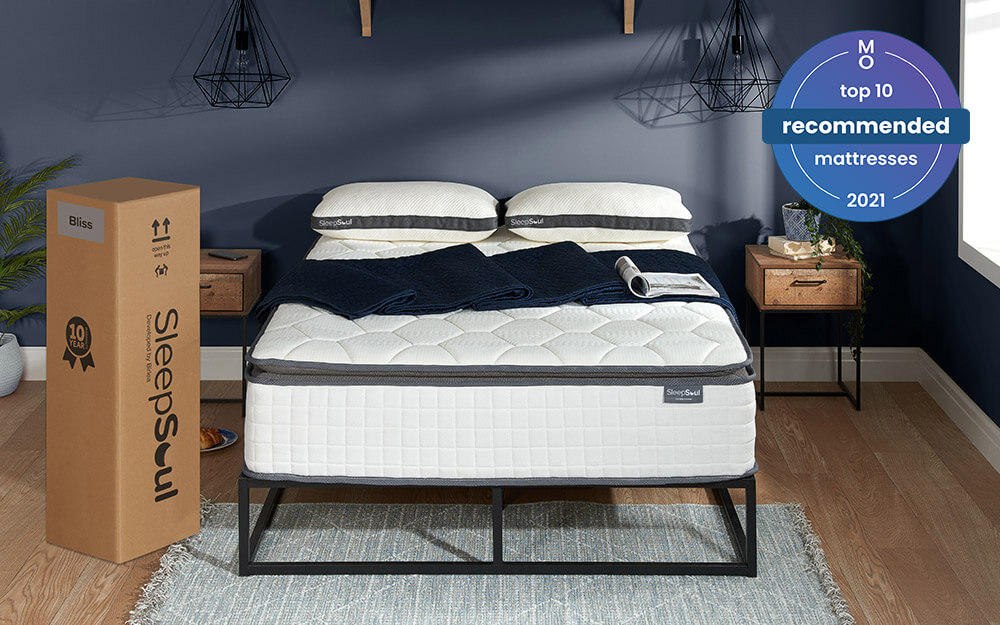
Less environmentally friendly
Unlike natural mattresses - which often use sustainable materials - and pocket sprung mattresses - which may use recycled materials - memory foam mattresses do not have a sustainable alternative.
To mitigate this, many manufacturers try to make the creation process as environmentally friendly as possible, but they are still a less eco-friendly option when compared with other mattresses.
Want to invest in a sustainable mattress? Take a look at our eco-friendly range today.
Now you know whether memory foam will be a good mattress type for you, why not head over and check out our range of memory foam mattresses today?
If memory foam isn’t quite the right fit for you, take a look at these other mattress types instead?:
If you’d like to continue learning about memory foam mattresses, you may find the following advice guides helpful:














